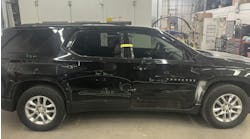Three groups of talent the automotive industry needs to address
In a previous article, I discussed the idea that our industry is not attractive to the talent pool we so desperately need. This idea is tough for our industry. I don’t want this discussion to be comfortable, however, because comfort is what has brought us to this point. We have been comfortable with the way we’ve always done things. We’ve always had a model whose foundation is based on piece work priced on a time standard that has little context with what actually happens in our bays. Our teams have always been paid based on what they produced, without consideration for what they need or what they earned.
We rely on the production team to provide the tools and equipment needed to do the job without consideration for process and accuracy, and we’ve always hired based on verbal acknowledgement of skill and years’ experience rather than hire to competency or proof of skill. We rarely have someone ready to take the place of a team member who leaves the company. Instead, we wait until they’re gone and then begin the search for a replacement. All the while complaining about the lack of response to help wanted ads and the cost of recruiting. For my generation, we’ve always thought it was normal for a tech to always be a tech and never want anything else except the few who go out on their own and compete against us. How many of you have had these thoughts?
As this industry faces the largest challenges in its history with respect to the advancements in vehicle technology, I don’t want you to miss the reality that our industry is being left behind as an attractive option for young people to consider investing in as a profession. We must realize that while we provide services for consumers on their vehicles that are some of the most complex technology machines on the planet, as an industry we lack innovation in making our careers one of the most preferred places to work. Many of you are taking innovative actions to make your businesses look attractive to motorists, have invested in beautiful facilities and education for your teams, etc. But at the core of what we do lies a crumbling cornerstone that we must replace if we are to survive: new talent.
Here we outline three groups with currently critical stances that our industry needs to impact. These groups are the young people looking for a career, the talent already in our industry but always seeking something better, and the skilled workforce leaving our industry for others.
Let’s start with the first group: youth who are looking for a career. The fact is there are many in vocational schools giving our industry a try while their friends enter other segments of vocational trades because it is a pathway to a good paying job that requires much less upfront money than investing in a college degree. But, we are seeing that many of these students in an automotive program are beginning to look at other industries for several reasons. First, other industries such as engineering, wind industry, etc., are more attractive because the cost of entry is low, and the benefits are on par with other industries. Entry level professionals don’t have to buy their own tools, and receive a benefits package that includes health care, retirement, life insurance, vacations, bonuses and – get this – a career path that illustrates to them the opportunity for growth and advancement. The second reason is that other industries are actively talking to young people; these industries act like they want them. In the meantime, the majority of our industry waits for graduates to show up and ask if we have an opening. Think about how you can offer a comparable compensation and benefit package that rewards talent for working in a production environment that provides the tools needed to be successful, and engages them in a career path that is planned and encouraged.
The second group consist of the journeyman techs who we consider to be the norm. What makes them move every year or two? These journeymen come in two types; skilled but without direction, and unskilled with inflated confidence and value. The former is worthy of investment, placing them on a career path and helping them organize their skills while training them to keep abreast of the technology. The latter evolved out of the typical flat rate model and lack of process in handling technology problems. Over the years, lack of skill could be hidden by speed of the wrench. This inflated the confidence of many techs who became known as the Master Tech in their shop, but who have not been given the foundational skills needed to solve problems on the technologies that are the norm in today’s bay. This tech is salvageable in the same way as the former, but it requires humility on their part. Both of these journeymen need process and support to thrive and gain satisfaction in their career.
The final group are those that are leaving our industry. If you follow any of the blogs and forums common in our world such as those found on Diagnostic Network, iATN, Facebook and others, you’ve read post after post about a shop’s best tech leaving the industry for something they find more attractive. In the past, many shop owners have looked at this as being okay because the tech may have put themselves through higher education with the goal of becoming an engineer. However, with our industry facing many professionals departing after spending years crafting their skills one has to wander: what made the tech take this route? Is it because they don’t see a future in our industry? Is it related to taking care of their family? Or has a different industry always been their dream or goal? I want to help them reach their dream, but with my company or as a partner in business. Ultimately, if they are the type of person I wanted when I hired them, and they aren’t satisfied with what they have with my company, then I need to find a way to challenge them in a way that allows them to stay.
Talent doesn’t grow on trees. Attitude doesn’t either. It is far more profitable to invest in and keep talent by stretching your business model to leverage that talent than it is to let them ride off into the sunset and hope an able replacement is picking up the phone to call.



